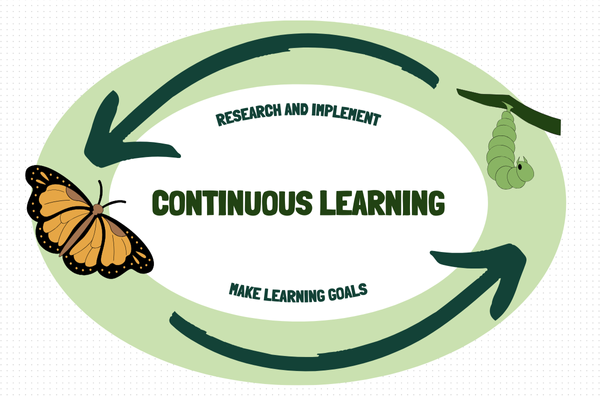The world of data science and analytics is constantly changing and at an accelerating rate with the help of big data analytics, machine learning, and AI. For students and young professionals stepping into this field, embracing continuous learning is not just beneficial—it’s crucial. The industry’s rapid evolution means staying up-to-date with new technologies, tools, and techniques.
Why Continuous Learning is Crucial?
Why bother with lifelong learning? Well, duh—work! Imagine a shiny new software comes along, and you’re stuck scratching your head because you don’t have a clue how it works. Yikes! Keeping your skills updated is like having a superpower in a world where tech changes faster than you can say “data breach.” So, stay curious, keep learning, and avoid the awkward moment of scrambling to catch up while everyone else is already ahead!
Choosing the Right Workplace
Your workplace can significantly impact your learning and growth. It’s essential to work in an environment that fosters continuous learning and innovation. Here’s how to ensure your job supports your growth:
- Look for Learning Opportunities: Choose a company that encourages professional development and offers opportunities to learn new technologies. Check if the organization supports training programs, workshops, and access to learning resources.
- Assess Your Role: Ensure that your role involves tasks that challenge you and require you to learn new skills. A job that keeps you engaged and pushes you to expand your expertise is ideal.
- Evaluate the Company Culture: A workplace that values learning will have a culture that promotes knowledge sharing and innovation. Look for signs that the company invests in its employees’ growth, such as mentorship programs, regular tech talks, and a collaborative atmosphere.
Set a Timeframe: If you find yourself in a role or company where learning opportunities are limited, it’s important to reassess your situation. If after a reasonable period, such as two years, you’re not seeing growth or new learning opportunities, it might be time to consider moving on. Staying too long in a stagnating environment can hinder your professional development.
How to Keep Learning
To stay ahead, consider the following strategies:
- Stay Updated on Industry Trends: Follow industry blogs, podcasts, and news sites. Websites like Kaggle, DataCamp, and Towards Data Science are excellent resources.
- Take Online Courses: Platforms like Coursera, and edX offer courses on the latest data science and analytics tools and techniques. Although I personally prefer free courses from Harvard and other well known universities.
- Participate in Data Challenges: Engaging in competitions on platforms like Kaggle and Tableau allows you to apply new skills and learn from others.
- Read Research Papers: Stay informed about the latest research by reading academic papers and attending conferences.
- Network with Peers: Join online communities, attend industry meetups, and engage with forums to exchange knowledge and stay motivated.
- Experiment with New Tools: Dedicate time to exploring and experimenting with new technologies and methodologies.
Conclusion
Tech will keep updating, but it’s your skills, knowledge, and critical thinking that will keep you ahead in the data world. Remember your job is an important part of your learning time and if you haven’t been learning or been challenged in a long time, it might be time to seek new opportunities.
